When the cliffs came into view, Prabir wondered if he was hallucinating, conjuring up the sight out of sheer need. But the land was real; the journey was almost over. He checked the notepad: the software showed the boat north-west of the island … but the cliffs were to his right. If he’d aimed true, they would have missed the islands completely.
As they drew nearer, Prabir saw that the cliffs didn’t quite meet the water; there was a narrow, rocky beach below. He had no idea whether this island was inhabited, but he felt sure that his parents would be waiting here: it was the nearest land, the simplest possible choice. He thought of circumnavigating the island, looking for the boat they’d used to make the crossing, but he didn’t trust himself to spot it in the dark. If he’d had any reason to believe that there was a harbour or a jetty he would have searched for that, but he wasn’t prepared to chase after the mere possibility.
He steered straight for the beach.
There was a grinding sound at his feet and the boat came to a shuddering halt. Madhusree rolled off the bench where she’d been sleeping, into the gap between the bench and the bow. Prabir grabbed the food bag beside him, dropped his notepad in, zipped it closed and draped the handle around his neck. Then he leapt forward and reached for Madhusree; she was only just waking, whimpering and confused. He lifted her up, wrapped his arms around her, and jumped into the water.
His feet touched rock. The water was waist high.
Prabir started crying, shaking with relief and unused adrenaline. Madhusree gazed at him uncertainly, as if trying to decide between a show of sympathy and a competitive display of tears.
She said tentatively, ‘I bumped my head.’
Prabir wiped his eyes with the heel of one palm. ‘Did you, darling? I’m sorry.’
He waded to the shore and put her down, then went back for the other two bags, then again for the unopened water can. The boat was dented, but the floor appeared dry; the composite hull was tougher than he’d realised.
He rested on the pebble-strewn beach, using the clothes bag as a pillow, cradling Madhusree on top of him. They were both still wearing their life jackets; when he closed his eyes, the universe shrank to the smell and squeak of plastic.
Prabir was woken by someone shouting a single word, far away. He listened for a while, but there was nothing more. Maybe he’d dreamt it.
It was still dark. He manoeuvred Madhusree on to one side, and checked his watch. It was just after four.
He’d dreamt that his father was standing at the top of the cliffs, calling his name . But if the image had only been a dream, the sound might still have been real.
Prabir rose to his feet, leaving Madhusree lying where he’d been. He’d have to take her with him if he explored the top of the cliffs. He couldn’t bring much else, though. He’d make do with a canteen of water.
He urinated into the sea, shivering. The stones were cold beneath his feet. He’d forgotten to bring shoes.
He walked along the beach for fifteen minutes before he found a break in the cliff wall, with a steep rocky path to the top. He scrambled up, nearly losing his footing half a dozen times. Madhusree slept on in his arms, oblivious.
There was thick coarse grass at the top of the cliff, and what he guessed was dense jungle in the distance. There was no fire, no light, no sign of life. The moonlight seemed to reveal that there was no one but the two of them from the cliff edge to the jungle, but then Prabir heard the voice again.
It was a man’s voice, but it wasn’t his father. The word he was shouting was ‘Allah!’
Prabir walked towards the sound, aware of the danger but tired of thinking of nothing else. His parents should have been there to meet him on the beach. He’d done all he could to get Madhusree to safety; anything that happened now was their fault.
He found the man lying on his back in the grass. He was an Indonesian soldier, almost shaven-headed, dressed in neat green camouflage and combat boots. He looked about nineteen. Some kind of long-barrelled weapon lay by his side.
Prabir said, in his halting Indonesian, ‘We’re friends, we won’t hurt you.’
The man turned on his side, fear in his eyes, clutching at his weapon. His face shone with sweat. There was a huge dark stain in his shirt over his abdomen.
Prabir said, ‘I’ll get help. Tell me where to go.’
The man stared at him mistrustfully. Finally he said, ‘I don’t know where they are. I don’t know where to send you.’
Prabir squatted down and offered him the canteen. The man hesitated, then took it and drank from it. When he offered it back, Prabir said, ‘Keep it.’ He still had ten litres on the beach.
It was hard to know how to talk to the soldier without angering him, but Prabir suggested tentatively, ‘The local people might help you.’
The man shook his head, grimacing, closing his eyes against the pain.
Madhusree woke, yawning and befuddled. She took in her new surroundings, then gazed at Prabir with intense disappointment. ‘I want Ma!’
The man opened his eyes and smiled at her. He propped himself up and held out his arms. Madhusree shook her head, unafraid but unwilling to indulge this stranger. He gave an understanding shrug, then screwed up his face suddenly and cried out again, ‘Allah!’ Tears escaped his eyelids and flowed down his cheeks.
Prabir felt his legs grow weak. He sat down in the grass, clutching Madhusree to his chest. There were so many things he’d forgotten to bring from the island: bandages, painkillers, antibiotics.
Madhusree dozed off again. The man fell silent; he seemed to have lost consciousness, though he was still breathing loudly. Prabir wondered if he really believed in Allah — an Allah who could send his comrades back to help him, or at least welcome him into Paradise — or if he’d merely been shouting the word from habit, like a curse. When Prabir had asked his father why so many people believed in gods, his father had said, ‘When things are hard, there’s a part of everyone that wants to believe there’s someone watching over them. Someone ready to help, or even just to judge their actions and acknowledge that they’ve done their best. But that’s not the way the world is.’
Prabir put Madhusree down on the grass; she stirred unhappily, but didn’t wake. He walked over to the soldier and sat beside him, cradling the dying man’s head in his arms.
Just before dawn, with birds screaming in the jungle, two heavily bearded men in ragged clothes approached.
Prabir said, ‘Don’t kill us. He won’t hurt anyone. He just needs a doctor. He can still be saved.’
One of the men lifted Madhusree into his arms, then grabbed Prabir by the shoulder and jerked him to his feet.
The other man squatted by the soldier and drew a knife. As Prabir was being led away, he heard a choking sound, like a swimmer coughing up sea water. He didn’t look back, and after a few seconds it stopped.
The detention camp was ten kilometres out of Exmouth, a small town on the north-west coast of Australia. Prabir found this puzzling, because almost everyone in the camp had come ashore at least a thousand kilometres further north. He knew that Darwin was home to a large community of Indonesian exiles, sympathetic people with invaluable local knowledge who would have happily visited the camp and offered advice, if it had only been closer. And though the government provided legal aid to help the detainees apply for refugee status, there were no lawyers in Exmouth, so they all had to travel great distances from Perth or Darwin. The camp had only one phone for twelve hundred inmates, so the lawyers had little choice but to make the trip in person, and this ate away at the time they might otherwise have spent on actual casework — not least because the cost of travel came out of each applicant’s legal aid allocation.
Читать дальше
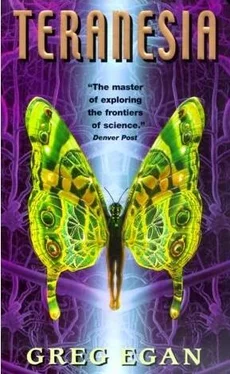

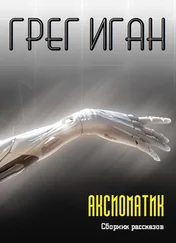
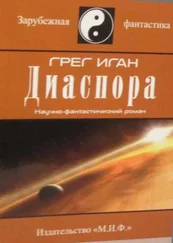
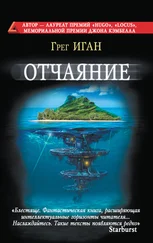
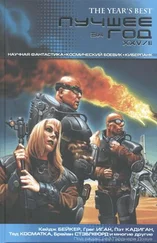



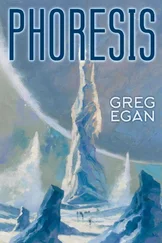
![Грег Иган - Рассказы [компиляция]](/books/419837/greg-igan-rasskazy-kompilyaciya-thumb.webp)
